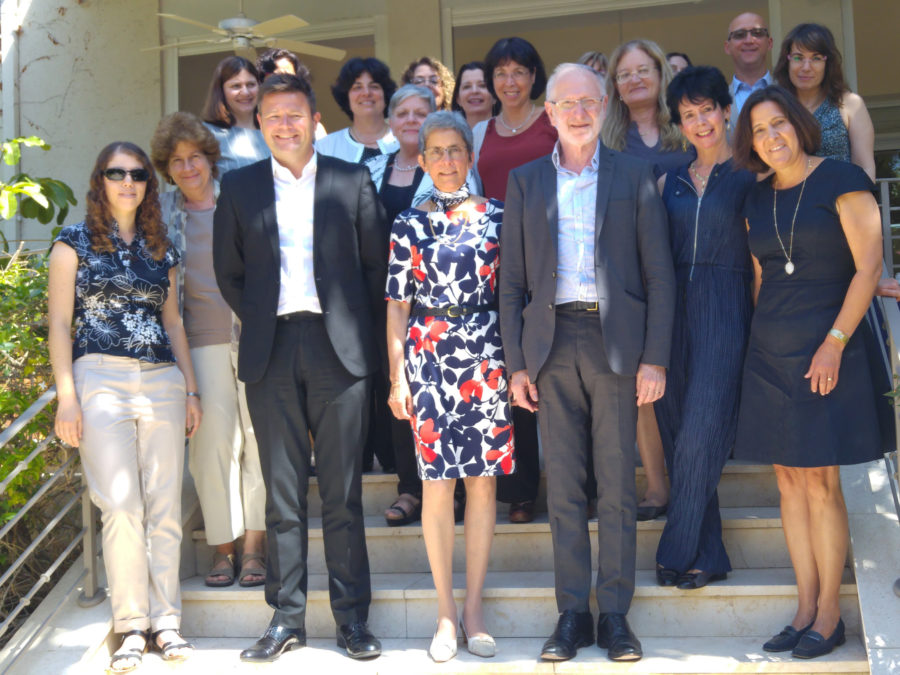13th June 2017 Science and Innovation Network
Shared Challenges Among Amazing Women in Medicine

The Science and Innovation Network and British Embassy in Israel had the opportunity to hold a “Women in Medicine” event in honour of a special guest from the UK: Prof. Parveen Kumar, this year’s “Henry Cohen” laureate. This prize is awarded to outstanding health professionals by the Jewish Medical Association in the UK who brings them to Israel, the “start-up nation”, to meet with exceptional figures in its health system and to tour the land.
Prof. Kumar, who has a special interest in the theme of women in medicine, is the first woman to be awarded this prize.
14 women, Israeli health professionals of the highest calibre, gathered in her honour for lunch at the Ambassador’s Residence. This group of exceptional women consists of the most influential and brilliant within senior management in the Israeli health system as well as a wide range of expertise. There were top administrators from the Ministry of Health, chairs of ethics committees, hospital department heads, a newly elected medical school dean and even a university president, all from different medical disciplines: genetics, family medicine, woman’s medicine (not to be confused with gynaecology), psychiatry, anesthesia, haematology and more. Many of them are the only women in Israel who hold these positions.
It was interesting to hear what obstacles some of them, but not all, encountered while building their careers. The most common challenge described was raising a family while pursuing their ambitions. Another challenge was the attitude in the 80’s towards women who wanted to become doctors, although already then 50% of med students were female. One was asked to bring her husband along to her residency interview to get his permission. Another story we heard showed how men in senior positions may be unaware of these issues, which is another problem.
The UK and Israel have similar statistics regarding women in medicine (over 50%) and women in senior medical management (only 10-15%). Prizes are seldom awarded to women in academia. These figures must be changed! All agreed that the way to do this is by making sure that to every senior position and to every award call at least 50% of the applicants should be women. Women should not be picked based on their gender, but increasing female application rates will ensure that many more will be picked based on their outstanding credentials and capabilities.